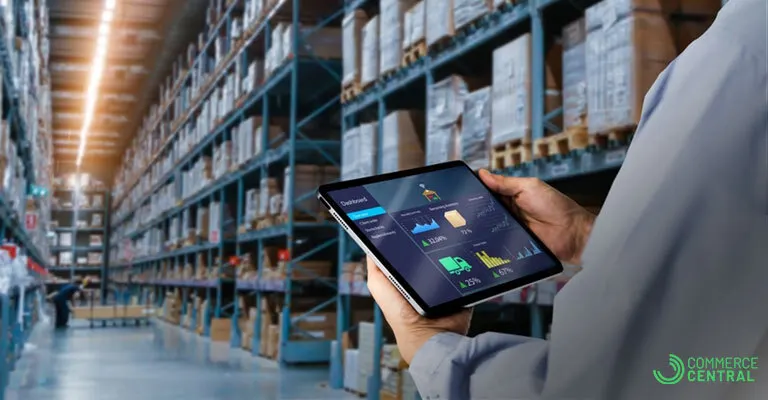

How to Buy Beauty and Health Deals? (Without Getting Burned)
How to Buy Beauty and Health Deals? (Without Getting Burned)
Closeout sales can be a great opportunity for name-brand beauty products at a lower price, but only if you know what you are doing. If you operate a discount, bin, flea market table or online store, purchasing beauty closeout inventory to resell can be a good way to generate strong margins. However, if you are not careful, you will buy expired lotion, leaking bottles, and makeup nobody wants.
This guide will help you do that. It will cover how to find the right deals in beauty and health, what to avoid, and relationships with your customers. There’s no need to guess. Only need to ask the right questions and know what to look for.
Why Do Beauty Products Go on Closeout?
There are several reasons retailers and brands sell beauty and personal care products on closeout. Sometimes a brand has just had a packaging change and needs to divest their stock. Sometimes a store wants to free up space on their shelves for new products. Maybe a holiday promotion has ended, or simply the line is getting discontinued. When any of these situations arise, sellers will sell a lot of sealed, unsold inventory they have on hand for a chance to buy another lot.
The lot goes to wholesalers, liquidators, or platforms that will allow you to buy the product by case, pallet, or truckload. If your load is clean, i.e., sealed, and as recent and retail-ready, the clean product can be flipped very quickly. However, if your lot is damaged, expired, or returned; the merchandise may sit for months or go directly to the landfill.
What Is the Shelf Life Problem?
Beauty closeouts typically involve risky products that are past their expiration date. Many beauty products do expire even lotion, face cream, shampoo, sunscreen or vitamin products expire. When they expire they lose their scent, color, or effectiveness as well as potentially becoming unsafe to use.
Furthermore, just because something is in a sealed container does not mean it is fresh, so always request both the expiration date and the date the product was made. Some products identify the expiration date clearly on the outside of the box or bottle. Others have a symbol such as "12M" which means that the product is good to use for 12 months after opened. This would not be enough time if the product sat on a warehouse shelf for three years.
There is an example of an online reseller that purchased what seemed to be a bounty of pristine face masks. While the product was indeed sealed, and when opened, the clay inside was so dried out that it could not be used. The seller later realized that they were manufactured five years prior, and sat in a hot warehouse. This purchase caused the seller a tremendous amount of lost return.
What Kind of Inventory Are You Getting?
Some are sealed, being extra One more detail to consider: what type of goods is in the load? A lot of sellers label their beauty pallets as "HBA", which is short for Health & Beauty Aids. This doesn't mean anything.
Products from big box stores that never made it to the shelf. These ones are usually your best option.
Some are shelf pulls, taken from the retail stores because the season has ended or because the packaging changed. These can be good too, just check for price tags or sticker residue.
Then there are returns. This is where things get hairy. Most retailers do not allow returned cosmetics on their shelves. Even if the item looks sealed, it could have been opened and resealed. This can be a legal issue for both safety and resale.
One buyer shared that they bought a pallet of "beauty mix" that contained 50% customer returns. Some of the bottles were half full. Others were sticky or had broken pumps. None of it could be resold.
Ultimately, Always ask the seller: Are these overstock, shelf pulls, or returns? If they won't answer you directly, then don't buy.
What Sells and What Doesn’t?
Some beauty items fly off the shelves, especially the types of products consumers need routinely like shampoo, bar soap, toothpaste, lotion, deodorant, and lip balms. These items are ubiquitous, easy to identify, easy to use, and customers simply just want to buy them, over and over.
However, not everything is a 'fast' seller. Of course there are 'trendy' items that are exciting like bright purple lipstick, glitter eye shadow, or celebrity branded skincare kits, but they often sit unsold as their associated trend has passed, or their promotional value ended.
I once saw a flea market vendor who bought a pallet of Halloween themed lipsticks in February. They were packed, sealed, and inexpensive, but no one wanted orange or black lipstick in the spring. The vendor ended up bundling them into kids' makeup packs just to create space.
Think 'year-round'. Keep it simple, sealed, and recognizable - that is the way to cash-in during your liquidation sale strategy!
What Can the Packaging Tell You?
Poor packaging can affect your resale, even if a product is sealed. Customers want to be sure it looks clean and safe. A dusty box, torn box, faded label or crushed corner might convince them to walk away — even when the product is not damaged.
One owner of a discount store found this out the hard way. He purchased a lot of name-brand lotion at a great price, but the boxes looked like they had been kicked down the street. They did not sell until he marked them down to a $1 bin.
When sourcing beauty closeouts, always ask for genuine pictures instead of stock pictures. If sourcing in person, open a few cases and take a look. Don't automatically assume that "sealed" means "all good". The condition can be crucial, especially if sourcing from a wholesale liquidation website where the listing images do not tell the story.
What Smart Buyers Do Differently?
The best buyers aren’t guessers. They take small steps, they ask direct questions, and they build trust with good suppliers. They monitor what sells, what doesn’t sell, and what their customers actually want.
One bin store in the Midwest used to just buy whichever was the cheapest. Now, this business only buys sealed beauty loads with visible shelf life and national brands. Their return rate has dropped to zero, and their repeat customer count has increased.
It is not about chasing after the biggest deal. It’s about buying products that you can actually sell - quickly, easily and without any headaches.
A Smarter Way to Source
If you are tired of guessing and losing money on loads that did not match the listing, you came to the right place, Commerce Central was built to help you. We verify shelf life, we show you real photos and we give you complete manifests before you buy. We only work with reputable sellers and inventories of health and beauty products that are sealed and shelf-ready so you can sell with confidence. You are in control and we support quietly in the background.
Tags:
More from the Commerce Central Blog
Unlock your inventory’s
full potential
Unlock your inventory’sfull potential
Join the only private surplus distribution platform built for trusted Buyers and Sellers.














